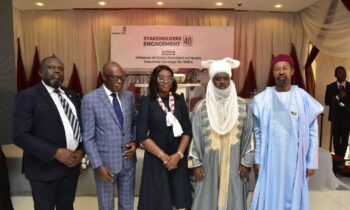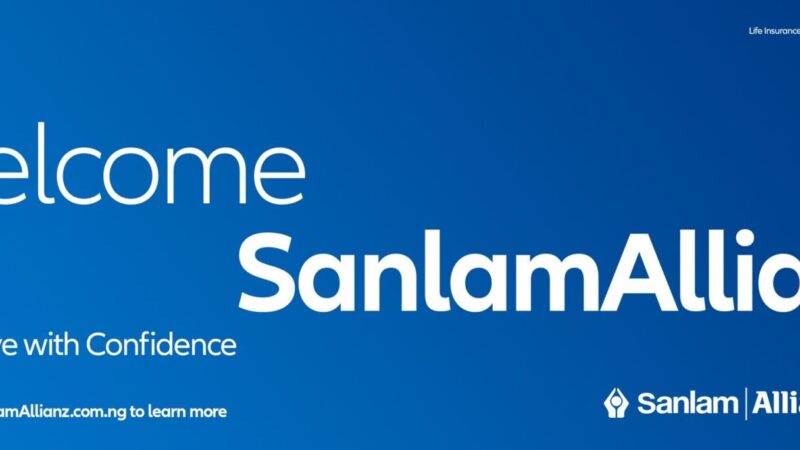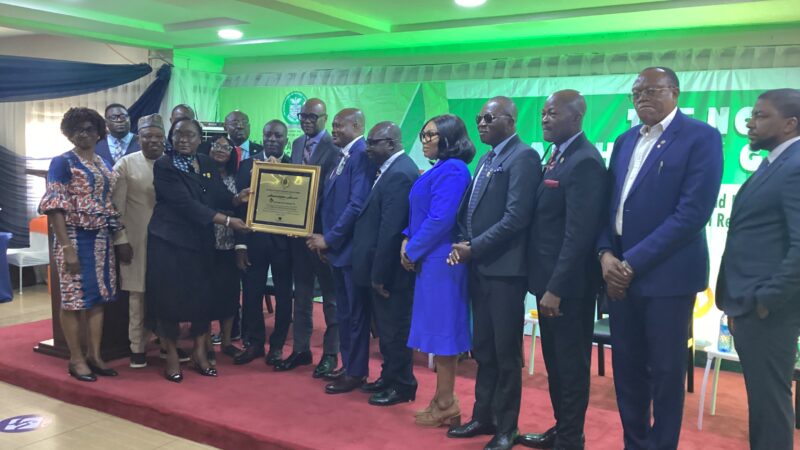Efekoha decries rising cost of healthcare on private HMOs sustainability

Kindly leave a comment and share
Chuks Udo Okonta
The rising cost of healthcare in Nigeria is exacerbating pressures on Health Management Organisations (HMOs) and threatening their sustainability, the Group CEO, Consolidated Hallmark Holdings Plc & Chairman, Hallmark HMO Eddie Efekoha, has said.
He said the growing pressure is putting private HMOs in a precarious financial position as heath insurance premium remain static.
“The cost of providing quality healthcare is rising sharply thereby threatening shareholders’ funds of many private businesses without any clear mechanisms for cost recovery” he said at the Stakeholders’ Engagement 4.0 of Hallmark Health Services Limited (Hallmark HMO) held Wednesday in Abuja.
He said Hallmark HMO understands the delicate balance between financial realities and healthcare accessibility but added that this balance is becoming increasingly unsustainable.
Efekoha further emphasized that whilst universal health coverage is a worthy and necessary goal, it must not come at the expense of the private sector’s balance sheet; otherwise, investments into the sector would be discouraged.
“Private HMOs play a pivotal role in the healthcare ecosystem, and they must be protected and supported, not weakened, in the process of achieving national health objectives” he stated.
According to him, when access to quality healthcare is deprioritized due to economic pressures, the ripple effects are severe.
“A healthy workforce is the lifeblood of any thriving business. Unexpected health emergencies can create significant financial burdens for both the employee and the business, potentially jeopardizing the very survival of these enterprises” he noted.
He said the theme of this year’s edition of the stakeholders’ engagement, “the influence of Global Downturn on Health Insurance Coverage for SMEs” is germane because “if SMEs are to continue to drive economic growth, innovation, and employment, then providing affordable and sustainable healthcare must be central to our shared agenda.”
Speaking on the regulatory space, he indicated that the regulatory environment is becoming increasingly challenging for operators in the industry.
“One of the most pressing concerns is the lack of clarity and separation of roles between private HMOs, state-sponsored health schemes and the National Health Insurance Authority (NHIA). These overlaps often result in conflicting mandates and policies, which can confuse stakeholders and hinder the delivery of efficient and coordinated care” queried.
He thus called for industry stakeholders’ collaboration if the goal to expand access to healthcare is to be realized adding that disputes or complaints must be resolved quickly and fairly.
In her remarks at the event, Mrs. Oladotun Adeogun, the Managing Director/CEO of Hallmark HMO said the company has over 1,500 hospitals across the country under their partnership.
She said this is the first time the engagement is happening in the north, mainly to engage with regulators and clients in the Northern region.
The company established in 2018 she said, has gained traction because of its emphasis on quality service delivery.
Competition is tough but we’ve worked more on quality service to stay in business she said adding that all the hospitals partnering with Hallmark HMO meet regulatory prescriptions.
Delivering a goodwill message, His Highness, Alhaji Ahmed Nuhu Bamalli (CFR), the Emir of Zazzau said most insurance companies are in a race to the bottom as they fight themselves to death in price wars.
Represented by Dr. Mohammed Aliyu Bamalli, Durbin Zazzau, the Emir said innovation will help SMEs benefit from health insurance.
“This is the big elephant in the room. Innovations in this space will include deductibles, co-payments, pharmacy benefits, etc.” But he also indicated that there is a need for a review of tariffs.
“More and more companies are moving back from managed care to retainership after 20 years. All actors in this space must come together to regroup.
The unsustainably low tariffs resulting from low premiums is leading to substandard/fake medication being dispensed to patients. This is a real risk” he emphasized.
He further noted that “small businesses face tough choices, balancing affordability, employee retention, and regulatory compliance. Those that keep coverage may opt for ‘leaner plans’, while others may drop benefits entirely. Government interventions and alternative insurance models could help mitigate some challenges” he advised.
The guest speaker, Dr. Olumide Okunola of the World Bank said the amount of the money government spends on its people determines the health of the people.
He reiterated that Nigeria’s out of pocket expenditure is one of the highest in the world at 75 per cent which shows the low investments threshold of the government on health insurance.
He said this accounts for the high mortality rates across vulnerable groups like children and pregnant women.
He advised the government to reduce the appetite for hard healthcare infrastructure but prioritise health insurance to activate private sector investments in healthcare infrastructure and others.






